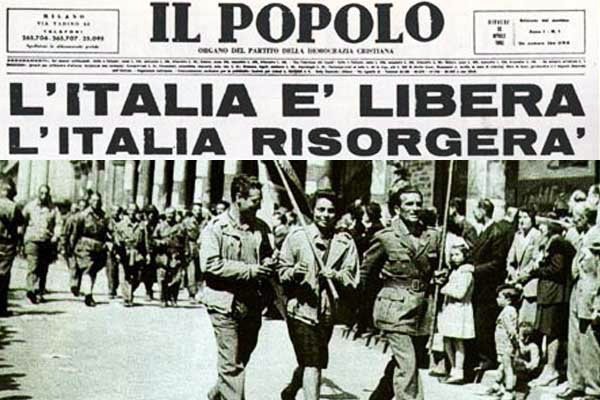Celebrating Liberation: Italy's Commemoration of Festa della Liberazione
In the heart of Italy, amidst the bustling streets and charming piazzas, lies a day of profound significance — Festa della Liberazione, or Liberation Day. This annual commemoration, observed on April 25th, marks the end of the Nazi occupation and Fascist rule during World War II in Italy. It's a day of remembrance, gratitude, and celebration, deeply ingrained in the nation's collective memory and culture.
Remembering the Past
To understand the significance of Festa della Liberazione, we must delve into Italy's tumultuous history during World War II. Following years of oppression under the Fascist regime led by Benito Mussolini, Italy found itself entangled in the horrors of war. The German occupation, coupled with Mussolini's alliance with Hitler, plunged the country into despair and suffering.
However, amidst the darkness, a glimmer of hope emerged. The courageous efforts of the Italian Resistance, or Resistenza, symbolized the nation's resilience and determination to regain freedom. Through acts of sabotage, clandestine operations, and unwavering spirit, the Resistance played a pivotal role in the eventual liberation of Italy.
Honoring Liberation Through Tradition
Festa della Liberazione is not merely a date on the calendar; it's a day infused with profound symbolism and meaningful traditions. One of the most cherished aspects of the celebration is the gathering of communities in town squares and streets across Italy. Here, people come together to pay tribute to the heroes of the Resistance and to reflect on the sacrifices made for freedom.
Food plays a central role in Italian culture, and Festa della Liberazione is no exception. Families and friends gather for festive meals featuring traditional dishes that evoke the flavors of liberation. From hearty pasta dishes to savory antipasti and decadent desserts, these culinary delights serve as a reminder of the resilience and solidarity that sustained Italians during challenging times.
A Blend of Religion and Remembrance
Religion also intertwines with the commemoration of Liberation Day in Italy. Many ceremonies and observances incorporate religious elements, such as Masses held in honor of fallen soldiers and civilians who sacrificed their lives for the country's freedom. Religious leaders offer prayers for peace and reconciliation, emphasizing the importance of unity and forgiveness in moving forward from the scars of war.
In addition to religious services, symbolic gestures like laying wreaths at memorials and monuments serve as poignant reminders of the human cost of liberation. These solemn rituals honor the memory of those who fought and died for Italy's freedom, ensuring that their legacy endures for generations to come.
Looking Towards the Future
As Italy commemorates Festa della Liberazione each year, it serves as a powerful reminder of the enduring values of freedom, democracy, and solidarity. It's a day to celebrate resilience, honor sacrifice, and reaffirm the commitment to building a brighter future for all Italians.
In the face of modern challenges, including political divisions and social inequalities, the spirit of the Resistance continues to inspire unity and activism. Festa della Liberazione serves as a call to action, urging citizens to uphold the principles of justice, equality, and human rights that remain the cornerstone of Italian identity.
As the sun sets on another Festa della Liberazione, let us remember the courage and sacrifice of those who came before us. Through remembrance and reflection, may we find the strength to overcome adversity and build a future defined by peace, prosperity, and freedom for all. Buona Liberazione!



